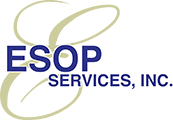September 4, 2009
Proposed ESOP Law Would put More Cash in the Pockets of Employee Owners and the Government
On August 6th, Senators Blanche Lincoln and Mary Landrieu introduced SR 1612, the ESOP Promotion of Improvement Act of 2009.
The first of the four provisions in the bill would provide immediate stimulus to the U.S. economy, while at the same time increasing the taxes collected by the state and federal governments. This provision repeals the 10% penalty tax on S corporation dividends that are passed through in cash to ESOP participants. The House and Senate should find a way to enact this legislation.
Background
Many ESOP companies are S corporations, and as such, they can pay S distributions (dividends) on the stock of the corporation, just like C corporations. However, in 1998 the IRS declared S corporation dividends to be an in-service distribution to ESOP participants and imposed a 10% penalty tax on S corporation dividends, thus discriminating against employee owners of S corporations.
C Corporations and S Corporations
If the board of directors of a C corporation declares a dividend on stock owned by the company’s ESOP, and that dividend is passed through to ESOP participants, then the ESOP participants would pay ordinary income tax on the dividend they received. I have served on boards of directors where cash dividends were paid to employee owners, and I have seen the positive motivational impact of those cash dividends.
If an S corporation dividend is passed through in cash to the ESOP participants, then ESOP participants would pay ordinary income tax and a 10% excise tax. Consequently, it is virtually unheard of for an S corporation to pay cash dividends to their ESOP participants.
Immediate Positive Impact
As soon as SR 1612 becomes law, thousands of small to mid-size ESOP S corporations will declare cash dividends to their employees because they have significant amounts of cash sitting in the ESOP, which they know their employees need due to the recession. Most of these companies have tightened their belts in one way or another by cutting benefits, bonuses, and/or direct wages. However, they refuse to pay S corporation dividends only to see the government collect an ordinary income tax and a 10% excise tax from their employees.
I serve on the boards of several 100% ESOP-owned S corporations that have been successful, and as a result, have significant amounts of cash residing in their ESOPs. If the 10% excise tax is repealed, many ESOP companies would pay a cash dividend to employees through the ESOP. If this repeal were to occur in 2009, employees would receive the money in 2009. The taxes paid on this money would stimulate the economy, and federal and state governments would receive more revenue.
Summary
The immediate passage of SR 1612 would result in millions of dollars, which are currently “locked” in thousands of ESOPs, being paid to employee owners who could use that cash during this economical downturn. As a result, state and federal governments would receive increased tax revenue that they so desperately need.
If there was ever a win-win situation, this is it.
